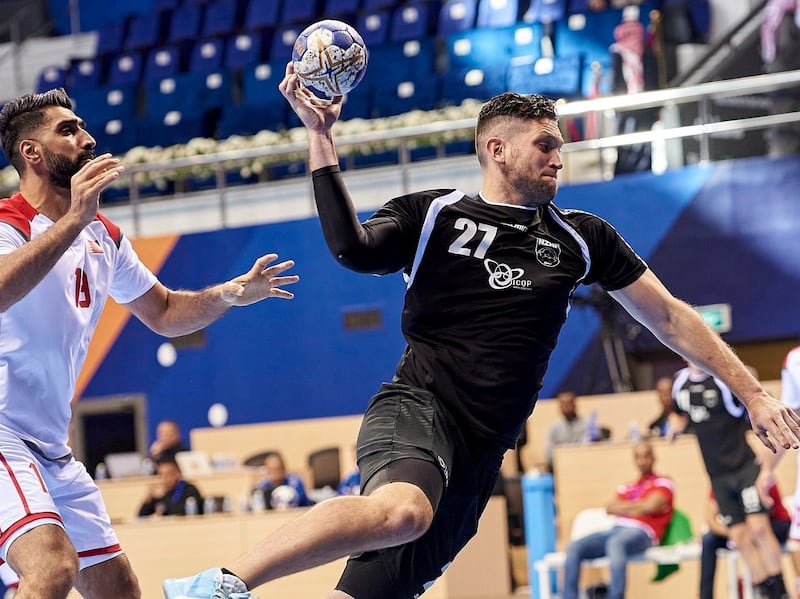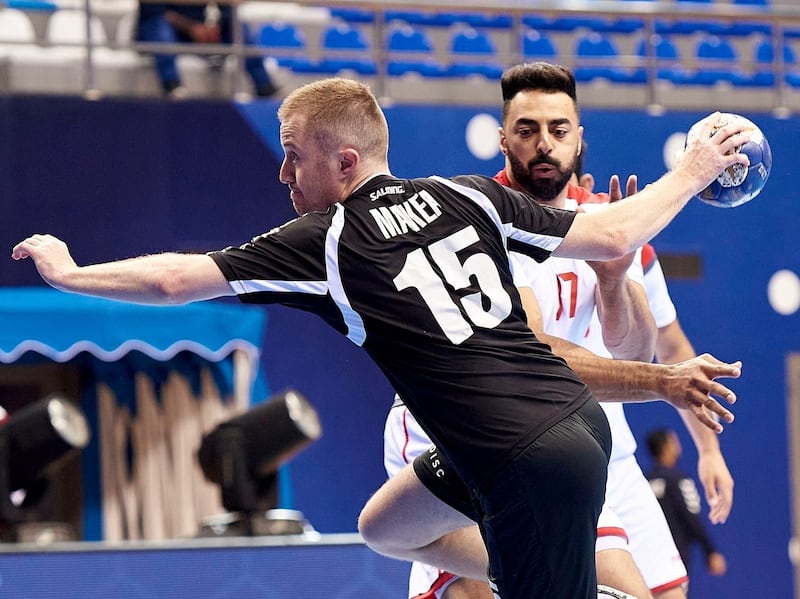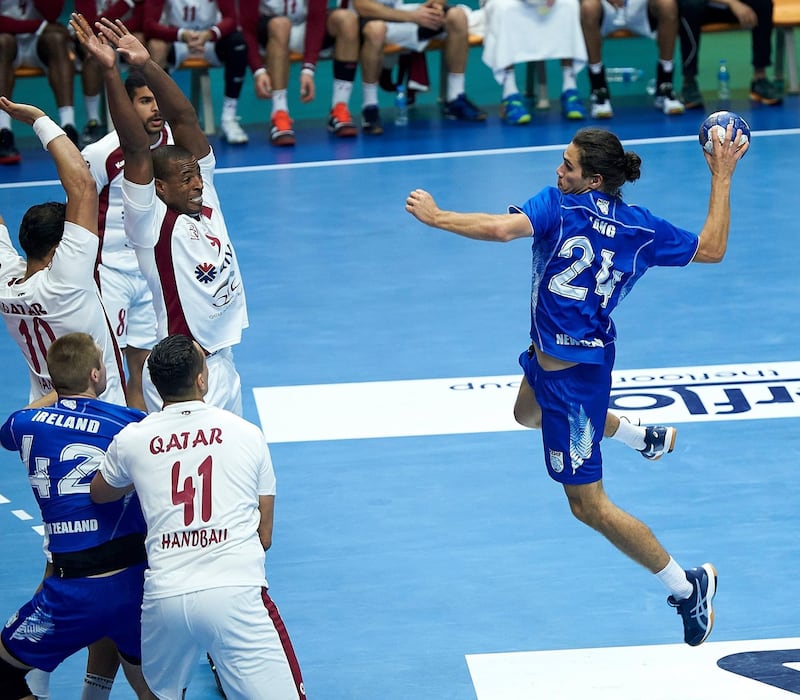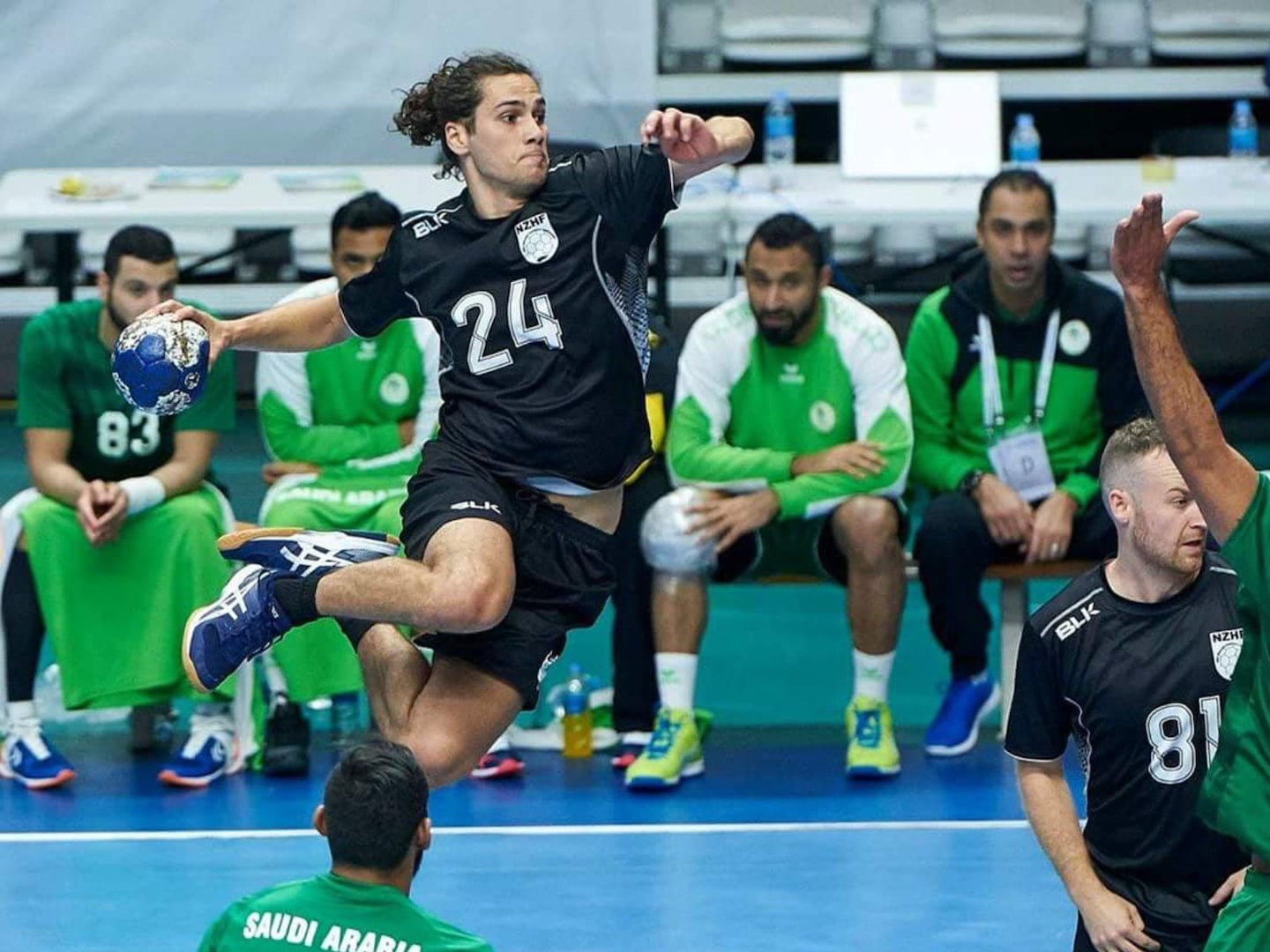When the New Zealand men’s handball team takes the court at the 21st Asian Championship in Bahrain next week, three Māori players will be out to leave their mark on a game that has similarities to the traditional Māori game of kī-o-rahi.
The big, audacious goal that Cameron Ross (Ngāti Ruanui), Willy Makea (Ngāti Kahungunu, Rongowhakaata), Aston Lang (Ngāpuhi) and their teammates have is to make New Zealand handball history.
“I definitely want to leave a bit of history within the sport and be that first team that’s achieved a win [at the Asian Championship] is important to me,” says Ross.
They are also adamant they want to honour their culture.
“Knowing not only did we contribute on the court but we also promoted Māoridom.”
Ross and Makea will jointly lead the New Zealand handball haka, Te Kapa Pā-ringa ō Pango, before each game. The haka composed by Hemi Prime - a whanaunga of Dalvanius Prime of Pātea Māori Club and Poi E fame - has special significance as their own, unique haka.
It references the saying, “Iti rearea, kahikatea, tei tei, ka taea”, meaning “Even the small rearea bird can ascend to the great heights of the Kahikatea tree.” In short, “anything’s possible at the end of the day”.
“It holds huge meaning and really reflects who we are,” says Ross.

Kī-o-rahi
Played by an estimated 30 million enthusiasts worldwide, the Olympic sport is made for Māori, say Wellingtonians Makea and Ross, who spoke to Te Ao News from Dubai, and will link up with Invercargill-based teammate Aston Lang in Bahrain for the tournament which runs from 11 to 25 January.
“Handball is made for our people. It’s always been something that I’ve been really encouraging of getting all of our people playing,” says Makea, 31.
The sport has a lot of similarities to kī-o-rahi and suits the natural athleticism of Māori, they say.
“It’s got a lot of running and jumping and throwing, side-stepping. It’s a lot of the stuff that we grew up playing between rugby and basketball and kī-o-rahi,” says Makea, who got into Wellington club handball as a 17-year-old through his brother.
Ross, 35, a school teacher, took up the game later in his sporting life, as a 27-year-old, after stints in rugby and league.
“You still get to make contact with guys, you get to put big hits in, hit gaps - all that kind of stuff.”
“It’s a game that suits the athleticism of Māori and showcases lots of different skills,” says Ross, who admits the sport has an added appeal for Māori.
“Obviously, it’s a hugely fun game.”
There is also a great sense of community and whanaungatanga in the sport in Aotearoa, he says.
“The community thing is huge in handball because the community is so small you do everything with them. They’re your mates that you go hang out with outside of playing ... Guys have found jobs through [handball] guys. It’s that link to community.
“That’s why I’d encourage Māori to do it. They’ll find, I guess it’s been like a sense of belonging for me, not only in the sport but within the people of the sport.”
Makea, a finance manager for an iwi settlement trust, sees lots of possibilities for handball - which is still growing and developing here but offers a multitude of overseas opportunities - and kī-o-rahi to collaborate.
“There’s a lot I think we could do together between handball and kī-o-rahi to grow both sports, especially with the player base there.”
A world of possibilities
Aston Lang’s handball career is one example of where the game can take Māori - although his situation is somewhat different in that he was living in the UK when he took up the sport at 17 in the build-up to the 2012 Olympics, when there was a drive to create a “legacy operation”.
“I was at the London 2012 Olympics, I watched the finals over there. People are super passionate about the sport. It’s got a huge following but it hasn’t quite made its way to this side of the world yet,” says Lang, whose father is Māori.
Lang was picked for the English junior national team and later moved to a sports academy in Denmark. He went on to play for the British men’s national team in Italy and afterwards a club team in Sweden, before returning home to Aotearoa.
In 2018, he was selected to represent New Zealand for the first time, at the Asian Championship in Korea.
“It was like a lifetime achievement really. It was all a bit overwhelming.”
“When I came back to New Zealand, I thought ‘oh, it’s never quite going to be the same as what it was in Europe.’ But when we got to Korea - and we were greeted by a man with a flag and a bus and taken to a hotel and then playing in Olympic-looking stadiums - it’s just awesome. I was shocked. It was amazing.”
The 30-year-old says a huge selling point is the chance handball offers Māori to see the world - a view shared by his Māori teammates.
“One thing that I think is super amazing about handball is the fact that we can travel and play the sport all over the world,” says Lang.
“What is really big for Māori people is it’s a way to expand your view of the world. It’s a life experience.”

Makea has been living in Portugal for the past six months, playing handball for a local club, as his job allows him to work remotely.
“The place I was living in was pretty close to a handball club so I just contacted them and rocked up to training one day and asked if I could train with them. I got a little bit of game time as well during their pre-season, but mainly just training.”
“It was really cool to be training three or four times a week with the team, getting as much handball time as I could. For us, compared to being back home in New Zealand, we don’t have a lot of resource to just be able to train like that. It was really beneficial for me.
“The standard was really good - a lot better than we normally see back in New Zealand. Just having a lot of good players around makes you step yourself up, push yourself that little bit harder and get a little bit better.”
Ross can rattle off a long list of places the game has taken him - all the time building up a bank of experience he hopes will make the difference in Bahrain.
“Through indoor [handball], I went to Kuwait, but through beach handball ... we were lucky enough to go on a trip last year to the World Championships in Greece. So that took me to Serbia, Croatia, France - and then we also went to the World Games in Alabama, so USA as well.”
‘Greatest reward’
The three Māori are part of a 15-member squad that has had to overcome a huge amount of uncertainty just to make it to this moment, including each needing to self-fund their way to Bahrain - about $15,000 each, when six weeks of pre-tournament training camps in New Zealand are also factored into the equation.
“Finding money for that, finding people committed to doing that - even down to having an entry into the tournament as well, doesn’t come through until really late,” says Makea.
“Actually, the tournament didn’t get announced until I think July. We know when it is but it doesn’t get announced until quite late. For countries like us that are all self-funded, we have no certainty over where the tournament is going to be so we can’t get any flights or accommodation.”
“As well, that period during Covid really hampered the squad and we lost a lot of the momentum we built up over 2018 to 2020 because we weren’t able to leave New Zealand to go away to tournaments. So we lost a few squad members over that time, which meant it was a little bit harder to restart it all at the start of last year.”
Despite the challenges, Makea says the team is ready and focused.
“We’re all in a pretty good headspace about that,” he says. “Pay the money and then we get ourselves somewhere we need to be.”
They are confident the team can secure the elusive, history-making first win for a New Zealand team at an Asian Championship. The team got close in Kuwait in 2020 when they narrowly lost to Hong Kong 34-30 in the placement round, after completion of the preliminary round.
“This is probably the first time we’ve had a real shot at winning a match, the first time we’ve really had depth in the quality of our team. We can all score goals,” says Lang. “For me, that’s got to be the greatest reward going over there.”
New Zealand is in the same group as Iran and South Korea - which finished fourth and fifth at the previous 16-team tournament in 2022 in Saudi Arabia (which was won by Qatar) - as well as China, a developing nation in the sport.
South Korea, with Japan, has traditionally been one of the strongest teams in Asia until the emergence of Qatar and Bahrain (the second-placed team last tournament).
If New Zealand is to win their historic first match then it is most likely to happen later in the tournament, after the top two and bottom two teams in each group split off.
“That would be the sensible assumption to say we’d likely win our match in the later stages of the tournament. But again, we’ve got some real quality in our team - and we’ve not been tested as a team abroad,” says Lang.
“It’d be a miracle – but I’m not saying it can’t happen. It could happen. And if it did - I can’t even explain it, I’d be so happy.”
“It’s important to remember that we learn a lot in these first two or three matches. We play world-class teams. We pick up a lot of trends in the early matches and we apply what we’ve learned in the later half.”

Organisers over recent years have invited New Zealand and Australia - who are not sending a team this year - to the tournament, which is now into its 21st edition, to help grow the game in Oceania.
This is New Zealand’s third Asia Championship, after Korea in 2018 and Kuwait in 2020. Makea has played in both tournaments. Covid travel restrictions meant New Zealand did not send a team in 2022.
“We’ve got a far more experienced team at this tournament,” says Makea. “The first two tournaments we went to we were really unsure of how the tournament works and I feel like now we’ve got the team that we can really make things happen. I think getting that first win is a big goal.
“I think that will be a huge achievement - not just in terms of getting that win on the board, but being part of history and being part of that legacy of New Zealand teams going to big tournaments and having something to aim for.
“Building for the future is something I’m really keen to help contribute to,” he says.
For Ross, the eldest of the three Māori in the team, this tournament is extra special.
“This will be my last tournament of this kind,” he says. “Saying a final goodbye to the sport that I’ve enjoyed for a pretty long time now. It’s been a huge part of everything I’ve done.”
He hopes to make his whānau proud.
“They’re the ones I’m thinking about when I go out onto the court. I want them to watch from back home and be like ‘there’s our son, there’s our brother, my husband’, doing awesome on the global stage and representing his country, who I am, Māoridom, all that kind of stuff.”
‘Promoting Māori on the world stage’
They each count representing their country and people among their greatest honours.
“I played for some good clubs and I played for Britain - but playing for New Zealand has been the highlight of all my years playing handball,” says Lang.
“In 2018 I stood at the front of the haka. In 2024 I’m standing at the back, so I’ve taken a step backward. But the haka is an important part of representing New Zealand. I’m honoured to be doing it – the New Zealand handball haka.”
Makea says leading the haka has special significance for him.
“It’s exciting, especially being part of the group to create this haka,” he says. “It’s really cool just to be representing the whānau – my whānau – via playing, but also through the haka as well and promoting Māori on that world stage.
“I know a lot of the teams we play at the tournaments, they love when we do a haka. Sometimes it’s a bit of a hassle to organise the timing before a game because [tournament officials] they’re really strict on the warm-up time - but once we get it in there, they love the fact that we’ve got something there that’s different and the fact that it’s our own haka too.”
Ross also takes immense pride in their haka.
“The under-19s went away to the World Cup in Croatia earlier this year [2023] - and they’re the first group that took it on independently and had a new leader. It was awesome, they did a really great job,” he says.
“It was a really proud moment for myself and the other guys that had been involved [in its creation], to see it with the next generation and knowing that it’s going to be a long-term thing.
“It holds huge meaning and really reflects who we are, especially the last part, my favourite one. Just the proverb about the bellbird flying to the highest peaks.
“Having that legacy in handball and knowing not only did we contribute on the court, but we also promoted Māoridom and further advanced that within our sport, as well.”


